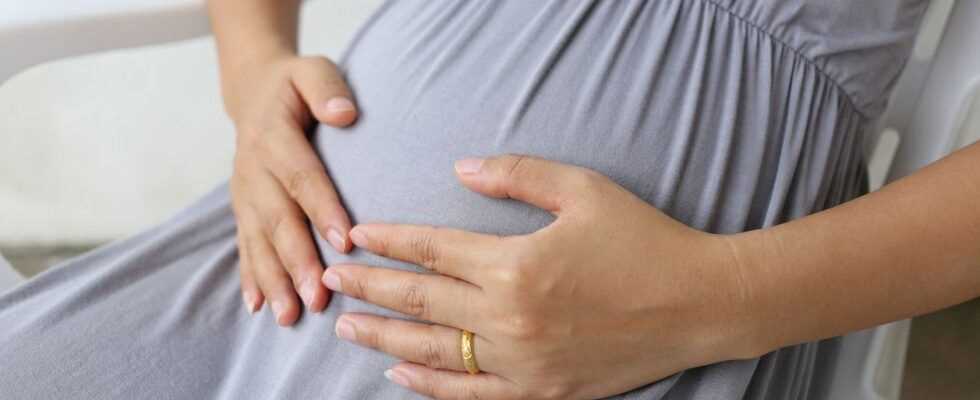Home
/ Mom / Pregnancy / Coronavirus: a confirmed case of intrauterine contamination
According to a study published by Antoine Béclère de Clamart Hospital in Île-de-France, Covid-19 can be transmitted from mother to fetus within the womb.
"We have shown that transmission from mother to fetus is possible via the placenta in the last weeks of pregnancy", underlined doctor Daniele De Luca, of Antoine Béclère de Clamart hospital, principal author of the study, published in the journal Nature Communications.
This observation was made on a woman in her twenties, suffering from the virus and hospitalized in early March. Only twenty-four hours after birth, the newborn baby presented severe symptoms including stiffness of the limbs and damage to the cerebral nervous system. These symptoms then eased until they disappeared on their own. The young woman having given birth by cesarean section, all the samples could be taken from the potential reservoirs of the SARS-CoV-2 virus. The highest concentration of the virus was found on the placenta. "It went from there through the umbilical cord to the baby, where it developed", said Doctor De Luca.
A case which concerns 2% of births
So far, several tests have been carried out around the world, including in China, Peru and even Russia, but it is still impossible to trace the source of the contamination. “It is necessary to analyze the maternal blood, the amniotic fluid, the blood of the newborn, the placenta, etc … Collecting all these samples during an epidemic with emergencies in all directions was not simple, that is why it was suspected, but not shown ”, he said. " The bad news is that it can happen. The good news is that it's rare – very rare even when reported to the public. ”, concluded Doctor De Luca.
In total, out of several thousand cases of children born to mothers with Covid-19, only 2% of infants tested positive for the virus. “The main message for pregnant women remains to avoid infection through hand washing and social distancing”, said Marian Knight professor of maternal and child health at the University of Oxford.
A case which therefore remains very rare.
